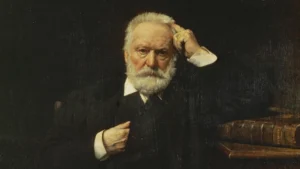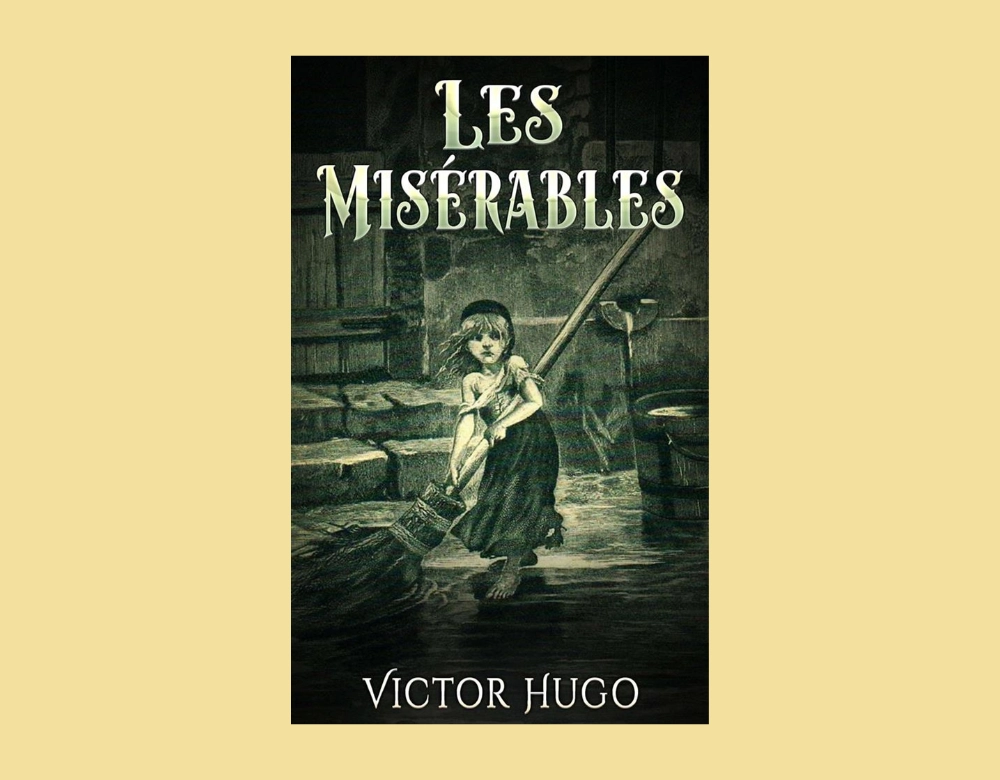Les Misérables’ Genre, Era, and Core Purpose
So what’s the deal with Les Misérables? It’s a book, yes, but calling it just a “novel” is like calling the ocean a puddle; it’s just not right. This massive (seriously, it’s enormous) book dropped in 1862, right in the thick of the Romantic Movement, although it totally anticipates the grittiness that would later define Realism. It’s this wild, beautiful blend of sweeping historical fiction we’re talking the Battle of Waterloo and Parisian student revolts and this deep, almost spiritual exploration of what it means to be good, or bad, or something in between.
The basic premise is super simple: A guy named Jean Valjean steals bread to feed his sister’s hungry kid, gets 19 years in prison, and then spends the rest of his life running away from a relentless lawman (Javert), trying desperately to become a decent person.
- Primary Genre Fusion: It’s a Historical Novel (massive scope, real events) and a Social Commentary (slams injustice).
- Literary Vibe (Direction): While it’s technically Romantic (big emotions, heroic individuals, focus on nature/spirit), the level of detailed social observation makes it a critical precursor to Realism. It’s like a romantic trying to write a realist book and just making an absolute masterpiece instead.
The Heavy Stuff: Main Issues and The Philosophical Weight of Les Misérables
The ideas in this book? They’re huge. Victor Hugo wasn’t just spinning a yarn; he was using Valjean and the other characters as, essentially, philosophical arguments wrapped in human skin. The whole darn thing is a giant interrogation of 19th-century French society and, honestly, all human society.
The big-ticket items the novel unpacks, which are, frankly, still totally relevant:
| Core Idea/Conflict | Why It Matters (The Gist) |
| Law vs. Justice | The fundamental tension between the cold, rigid rules of society (represented by Javert) and actual, messy, human morality (Valjean’s journey). The law isn’t always right. |
| The Ripple Effect of Poverty | How utter destitution can force people into crime (Valjean stealing bread), and how society then crushes them for it. It’s a brutal condemnation of economic inequality. |
| Redemption and Forgiveness | The novel argues that the human soul is plastic; it can be remolded. This starts with the Bishop’s act of grace and is the central driving force. It’s a message of overwhelming optimism despite all the suffering. |
| The Role of Revolution | The failed 1832 student uprising. It shows how pure, passionate ideals (Courfeyrac, Enjolras) often meet brutal, bloody reality. Idealism is necessary, even if it fails spectacularly. |
The main point? Love and compassion are the only things that can truly repair the social contract that poverty and injustice have shredded.
When a Book Jumps Off the Page: Les Misérables’ Seismic Stage Impact

Changing the Game: How Les Misérables Affected Staging and Direction
It’s pretty nuts how a massive novel could totally revolutionize the theatre world, but it did. The sheer emotional scope and the complexity of the philosophical ideas in Les Misérables basically forced directors and writers to think bigger. Because the novel demands you show epic social change alongside intimate human emotion, it paved the way for massive, sweeping, almost cinematic drama. It made playwrights realize you don’t just need drawing-room dialogue; you need spectacle, you need history, you need the common people taking center stage.
- The novel’s structure these huge digressions on things like sewer systems or Waterloo pushed adaptors to create productions that could handle both the intimate psychological drama and the gigantic social canvas.
- It established a precedent that musicals could, and should, tackle genuinely heavy, complex, and tragic political themes. Before, musicals were often just light fluff (I mean, mostly). Les Mis proved they could be utterly profound and completely heartbreaking. That was a big deal.
The Show Must Go On: The Mega-Famous Adaptations of the Book
Look, there have been a ton of versions, but one stands above all the others, obviously (the musical, I mean). The story’s intense emotional core is just perfect for the stage; it’s just totally dramatic.
A Look at Key Adaptations:
| Adaptation Type | Key Example/Details | Why It’s Famous |
| The Musical (The Big One) | The Boublil and Schönberg 1980 production. Debuted in London (1985) and has been running non-stop practically ever since. | It’s one of the longest-running musicals in history. The songs are anthems (“Do You Hear the People Sing?”). Totally essential viewing. |
| Major Film Versions | The 1998 movie (Liam Neeson/Geoffrey Rush) and the 2012 movie (Hugh Jackman/Russell Crowe). | The 2012 version popularized the “singing live on set” technique, making it feel, well, super raw and emotional. That was a directorial choice that really worked. |
| Earlier Stage Plays | The novel was adapted almost immediately after publication, though these earlier versions aren’t commonly performed today. | Proved the novel’s immediate, overwhelming popular appeal right from the start; people just had to see this story told. |
Required Reading: Why Students Still Need Les Misérables
This Text is Non-Negotiable: Why Future Experts Need to Study It
If you’re studying anything related to the humanities literature, theatre, history, sociology you simply can’t skip Victor Hugo’s masterpiece. It’s not just an old book; it’s a manual for how to think about people and power structures. The complexity of the characters and the way Hugo layers his political commentary throughout the plot makes it one of the best examples of a text functioning as a socio-political argument.
It’s completely crucial for students because:
- Character Ambiguity: It makes you grapple with the fact that people aren’t all good or all bad. Javert thinks he’s good, but his inflexibility is terrifying. Valjean starts bad but becomes saintly. That level of nuance is a vital analytical skill.
- Narrative Structure: It teaches you about the epic novel how to manage huge timelines, massive casts, and integrate detailed historical background without losing the emotional thread. That structural mastery is important.
- Ethical Exploration: It forces you to debate real-world ethics: Is it okay to steal if you’re starving? When does the duty to the self end, and the duty to others begin? This is absolutely essential for critical thinking.
Further Dive: What Else Should You Read After Les Misérables?
Once you’ve wrestled with Valjean and Javert, you’re probably gonna want more of that kind of heavy, socially aware literature. You’ve just finished a book that takes about 40 hours to read, so here are some follow-ups some by Hugo, some totally influenced by him.
| Recommendation | Why it Connects to Les Mis |
| The Hunchback of Notre Dame (Hugo) | Also deals with social outcasts, physical deformity, and the incredible hypocrisy of religious/societal institutions. Same massive, sprawling style. |
| A Tale of Two Cities (Dickens) | Dickens was massively influenced by Hugo. This is another gigantic historical novel about revolution, self-sacrifice, and deep social injustice (this time in England/France). |
| Germinal (Zola) | Moves into hardcore Naturalism, but retains the focus on the misery of the working class (miners) and the inevitability of social conflict. It’s the next, grittier evolution of Les Mis’ themes. |
Final Thoughts: The Unending Relevance of Les Misérables
So, we come to the end of this discussion. What are we left with? The legacy of Les Misérables is not just about a phenomenal book or a wildly successful musical; it’s about the fact that Victor Hugo permanently inserted the idea of radical grace into the public consciousness. The themes haven’t aged a bit, have they? We still argue about law and justice, police reform, wealth inequality, and who gets a second chance in society.
- The enduring power lies in its argument that poverty is a destructive force, not a moral failing.
- In theatre, it showed that human suffering and political critique could be blockbuster entertainment, leading to everything from Hamilton to Rent (maybe).
- Les Misérables serves as a constant, heavy reminder that the measure of any civilization isn’t how it treats its successful people, but literally how it treats the miserable ones.
The book is an absolute, permanent fixture, a cultural touchstone that simply refuses to go away. And that’s because, well, the fight for justice Valjean’s fight is always still going on

